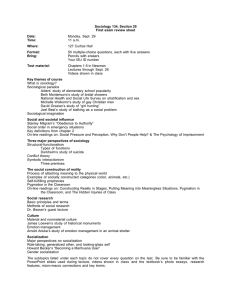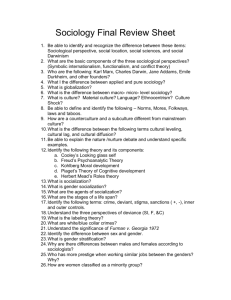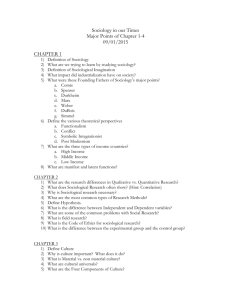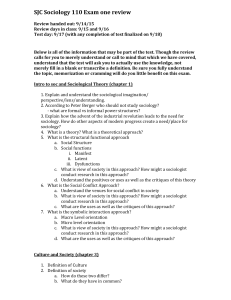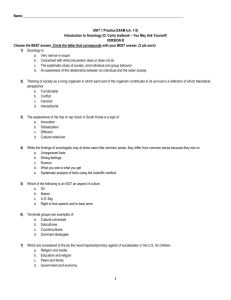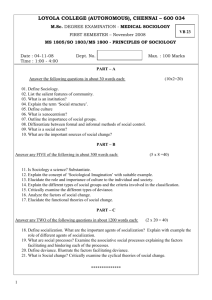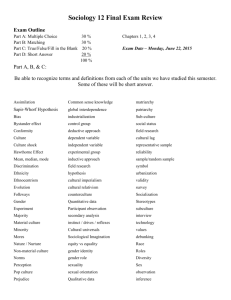1, 2, and 3 - Regis University: Academic Web Server for Faculty
advertisement
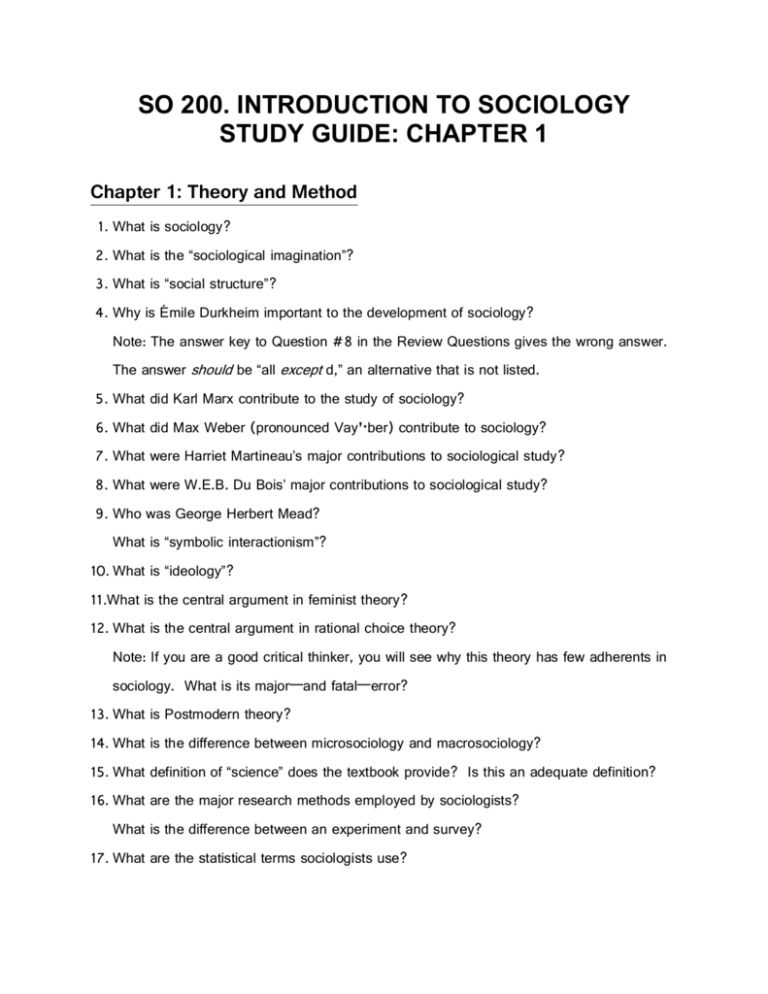
SO 200. INTRODUCTION TO SOCIOLOGY STUDY GUIDE: CHAPTER 1 Chapter 1: Theory and Method 1. What is sociology? 2. What is the “sociological imagination”? 3. What is “social structure”? 4. Why is Émile Durkheim important to the development of sociology? Note: The answer key to Question #8 in the Review Questions gives the wrong answer. The answer should be “all except d,” an alternative that is not listed. 5. What did Karl Marx contribute to the study of sociology? 6. What did Max Weber (pronounced Vay'·ber) contribute to sociology? 7. What were Harriet Martineau’s major contributions to sociological study? 8. What were W.E.B. Du Bois’ major contributions to sociological study? 9. Who was George Herbert Mead? What is “symbolic interactionism”? 10. What is “ideology”? 11.What is the central argument in feminist theory? 12. What is the central argument in rational choice theory? Note: If you are a good critical thinker, you will see why this theory has few adherents in sociology. What is its major—and fatal—error? 13. What is Postmodern theory? 14. What is the difference between microsociology and macrosociology? 15. What definition of “science” does the textbook provide? Is this an adequate definition? 16. What are the major research methods employed by sociologists? What is the difference between an experiment and survey? 17. What are the statistical terms sociologists use? Define “mean,” “median,” “mode,” and “standard deviation.” SO 200. INTRODUCTION TO SOCIOLOGY STUDY GUIDE: CHAPTERS 2 & 3 Chapter 2: Culture and Society 1. Define the following: Culture Values Norms Society Material Culture (Material Goods) Colonialism Ethnocentrism Language Multiculturalism Semiotics Signifier Industrialization 2. What is the basis for the rise of modern societies? 3. What are cultural universals? 4. How do sociologists deal with the debate about “nature versus nurture”? 5. What is the relationship between subcultures and dominant cultures? 6. What are the types of Premodern societies? What has happened to them? 7. What is “globalization”? 8. Does the Internet promote a global culture? 9. What does the case of the Amish teach us about culture? (See Box, pp. 42-43) Chapter 3: Socialization and the Life Cycle 1. Define the following: Socialization Identity Social Identity Peer Group Role (Social Role) Generalized Other 2. What would we be like if socialization did not take place? 3. What are the stages of socialization according to George Herbert Mead? 4. What are the major agents of socialization? 5. In what sense are video games “gendered play spaces”? 6. What are the stages of the life cycle in the United States? Is this culturally universal? 7. How do Japanese and U.S. teenagers compare?
